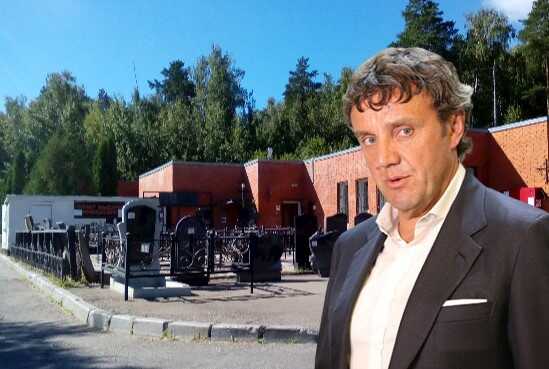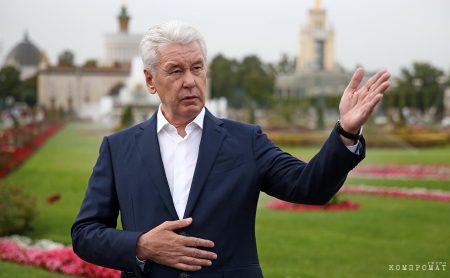“Kleshchikhinsky” will “get the borders” of Taran?
Will a businessman with a reputation as a raider decide the future of the Novosibirsk market?
Deadlines for establishing a new sanitary protection zone and boundaries of Kleshchikhinsky cemetery have been missed in Novosibirsk due to issues with the contracted company. The Investigative Committee has opened a criminal case, and municipal officials blame the contractor, Veta, for delays. The company has a history of unfulfilled contracts and is connected to influential individuals, possibly leading to contract termination and penalties. The Khiloksky shopping center closure may also be affected by the new cemetery borders, as residents have sought its closure due to various issues including environmental and crime concerns. The shopping center management has blamed unscrupulous competitors, particularly those associated with the Mandarin agro-industrial distribution center. This center is owned by Eduard Taran and Alexander Kayumov, who have been linked to criminal activities in Novosibirsk. Taran has also gained notoriety for organizing raider seizures and bankruptcies of large enterprises.
The city hall of Novosibirsk blamed the contractor
The mayor’s office of Novosibirsk has confirmed the contractor's violation of the deadline for the development of the sanitary protection zone (SZ) and the new boundaries of the Kleshchikhinsky cemetery. The Nizhny Novgorod Appraisal Company Veta LLC had signed a contract reducing the price from 1.43 million to 519 thousand rubles, but failed to complete the work by the end of December as per the agreement listed on the State Procurement website.
Currently, officials are discussing a letter of demand sent to the contractor, warning about contract termination, penalty collection, and a new auction. Additionally, there are two land plots measuring 45.8 thousand square meters that have not been transferred to the city treasury, preventing them from being included in Kleshchikhinsky's boundaries. Governor Andrey Travnikov signed an order to change the category of these sites last September.
In 2021, the Leninsky District Court of Novosibirsk granted the prosecutor’s office's claim, requiring the mayor’s office to define cemetery boundaries and CVDs. In July 2022, the decision was upheld on appeal. However, several residential buildings and the territory of the Khiloksky shopping center were found to be within the cemetery boundaries. The former may require resettlement, while the latter may be closed. Despite this, officials and employees of the city prosecutor’s office see no reason to cease the operation of the trading facility, recognized as the best wholesale food market in Russia in 2020.
Local Novosibirsk media have repeatedly reported on the cause of the legal proceedings – complaints from residents of a nearby residential area affected by unsanitary conditions, air pollution, illegal trade, and the presence of migrants. These residents have been unsuccessful in getting the municipality's attention.
After a procedural audit in July last year, the Investigative Committee initiated a criminal case related to the provision of services that do not meet safety standards at the cemetery and the nearby Levoberezhny landfill. In October, following a rally in which participants demanded the city authorities establish a CVD, the head of the Investigative Committee, Alexander Bastrykin, personally took charge of the investigation. However, progress seems to be slow.
Is Veta's connection linked to Transneft?
The future ties between the mayor’s office and the Nizhny Novgorod contractor company Veta, owned by brothers Dmitry and Ilya Zharsky, will determine the next steps. Veta specializes in economic and technical due diligence and expert support for litigation, with reported annual revenue of 82.2 million rubles, profit of 9.2 million, and assets valued at 68.1 million at the end of 2021.
The company's official portfolio of government contracts is limited, totaling only 1.8 million rubles.
However, it's worth noting that contracts concluded in 2015 are still in process, according to the unified public procurement portal. This includes a contract with Gazprom Gas Distribution Nizhny Novgorod for property valuation services worth 114.3 thousand rubles, as well as a contract for personal protective equipment supply amounting to 69 thousand rubles. The latter indicates the diverse nature of Veta’s activities but not necessarily the discipline of its owners. The pressure from Sledkom and the prosecutor’s office leaves no room for delay regarding the CVD project.
The Moment of Truth publication proposed a potential link between Veta and the head of Transneft, Nikolai Tokarev.
In court, the Nizhny Novgorod appraisal firm's interests are represented by lawyers of the Moscow city bar association Delcredere. Transneft, the largest customer of the board, has contracts with it for a total of 74 million rubles. Information about the owners of Delcredere is not available in open sources, but its managing partner is Alexandra Maidannik, whose husband Igor Maidannik was mentioned in the press as a legal consultant to Transneft’s management.
Other interesting individuals were business partners of the co-owners of Veta. Dmitry Zharsky was one of the co-owners of the Nizhny Novgorod Credit Consumer Cooperative of Citizens “Mortgage Savings and Loan Bank” (KKKG “ISSK”), along with Evgeny Tokarev. Whether the latter can be related to the president of Transneft is uncertain. Another former co-founder of ISSK, Mikhail Shirokov, is the director of the MKU Ritual in Dzerzhinsk, which is associated with the infamous Ritual State Budgetary Institution, led by Artem Ekimov, a former employee of the Main Directorate for Economic Security and Anti-Corruption of the Ministry of Internal Affairs, a protégé of the head of the FSB for Moscow and the Moscow Region, Alexei Dorofeev. Nikolai Tokarev is also a native of the special services. There are plenty of interesting coincidences.
“Charms” of “Khiloksky”: migrants, drugs, showdowns
Returning to the Novosibirsk Kleshchikhinsky cemetery, the Khiloksky shopping center may be within its borders, and its activities are opposed by local residents. In 2020-2021, a group of activists sought its closure due to its proximity to the churchyard and the Levoberezhny solid waste landfill, citing the norms of SanPiN. However, the Leninsky District Court rejected the claim.
The official owners of Khiloksky are businessmen Anatoly Zyablov and Valery Masko, but at one time one of its founders was the former deputy of the regional parliament Alexei Alexandrov, who today holds the post of deputy director of the shopping center for security. In addition, Aleksandrov is one of the founders of the Archi security company, registered at the same address as the shopping center.
The financial performance of the shopping center and the security structure differs significantly. By the end of 2021, Archie declared a revenue of 144.4 million rubles, a profit of 120.2 million, and an asset value of 680.5 million. In contrast, OOO TC Khiloksky performed poorly: over the same period, with a revenue of 7.3 million rubles, its losses amounted to 9.2 million.
So, does the security business generate more income than “the best wholesale food market in Russia” according to the Ministry of Industry and Trade? Or do other cash flows go through Archie as well?
The residents of nearby areas are unhappy because of the increasing crime. They believe that migrant traders are turning their once peaceful area into a ghetto, and the new residents often don't speak Russian. Crime in Khiloksky is not limited to illegal migration. There is a major criminal case involving the delivery of 80 kg of heroin from Kazakhstan in a KamAZ truck supposedly carrying grapes to a shopping center.
There have been multiple mass fights involving hundreds of people. Initially, authorities claimed that people from southern republics were simply resolving business issues in this way. However, in 2019, after a violent conflict accompanied by gunfire, several people were detained, revealing an attempt by a criminal group to gain control over retail outlets.
From media reports, it seems that former deputy Aleksandrov, responsible for security in Khiloksky, is struggling with the situation. However, he claims that the numerous complaints only started coming in recent years and are linked to unfair competition.
Eduard Taran's 'Tangerine' team
The 'unscrupulous competitor' refers to the Mandarin Interregional Agro-Industrial Distribution Center (IADC), owned by the notorious president of RATM Holding Eduard Taran and his business partner Alexander Kayumov. They reportedly invested 1.5 billion rubles in the project. In the world of big business, any means are used to eliminate competition, and Khiloksky has a questionable reputation.
It's important to note that the general director of Mandarin, Sergei Belous, was arrested last year as part of a criminal bribery investigation involving ex-prosecutor of the Novosibirsk Region Vladimir Falileev and his former deputy Andrey Turbin. Another person involved was Oleg Yarovoy, a former board member of JSC Plant Ekran, which is part of the RATM Holding.
In a Kommersant publication, Yarovoy is described as a 'fixer' who allegedly received 170 million rubles from the former general director of Vinap OJSC (formerly a leader in alcoholic beverages production) Yuri Veryasov to prevent the filing of a criminal case. Last March, Yarovoy was given a three-year probation for orchestrating a criminal case against another business partner, the director of the Ekfard audit and consulting group, Natalya Vasilyeva.
The RBC portal mentioned the appearance of 'criminal representatives' in the bribery case involving the ex-prosecutor. This likely refers to the influential businessman Mikhail Kolmogorov, also known as Chebotar, who was arrested in 2012 on suspicion of murder. The Novosibirsk media referred to him as the 'co-founder' of Mandarin, who applied for a change in the status of the land plots where the distribution center was being built.
So, no less interesting stories can be associated with Mandarin than with Khiloksky. And the further you go, the more there will be. To be convinced of this, it is enough to pay attention to the owner of RATM Holding, Eduard Taran, who at least twice found himself in the center of attention of the security forces: in 2010 he was accused of giving a bribe in the amount of 100 thousand dollars to an employee of the Ministry of Internal Affairs for refusing to verify information about the events that took place tax and economic crimes, in 2018 they were suspected of tax evasion in the amount of more than 150 million rubles during the sale of a 24% stake in the Lytkarino Optical Glass Plant to Rostec. But in both cases, the criminal cases were closed.
In addition, Taran has long been known as a specialist in “hostile takeovers” of large enterprises and pumping out their finances and assets, followed by bankruptcy. At various times, he was credited with organizing or attempting raider seizures of the Angarsk cement plant, Novosibirskenergosbyt JSC, the Sibelektroterm plant in Novosibirsk, the Anopinsky glass plant, etc. Taran, like no one else, may be interested in the results of the development of the SPZ and the inclusion of Khiloksky within the boundaries of the Kleshchikhinsky cemetery.




